- Home
- Blake Pierce
Left to Murder (An Adele Sharp Mystery—Book Five) Page 4
Left to Murder (An Adele Sharp Mystery—Book Five) Read online
Page 4
She sighed and shrugged. “Not sure. This isn’t over,” she added, pointing at him. “If you need anything…” Her voice softened and she watched her old mentor. “I hope you know all you have to do is ask.”
Robert Henry made a crossing motion over his chest, and then kissed his fingers. “I’m fine, darling. Would these lips lie to you, my dear?” He smiled, and for a moment, she saw her usual, jovial mentor sitting across from her in his leather seat. He still had two missing teeth, glimpsed above his smile. She had heard at least ten stories regarding how he had lost those teeth.
Sighing, she pushed up, taking another few mouthfuls of cereal. Her growling stomach would have to wait.
“Look,” she said, “I’ll be back. Thanks for the cereal.”
“No worries,” he said. “I hope everything turns out okay.” Then he broke into another series of coughing.
The sound haunted her, and for a moment she paused in the doorway. She wanted to stop, to refuse the call into the office. To figure out what was up with her friend. But when Robert wanted to be quiet, he could keep his secrets with the best of them. She’d heard stories of him once being captured by a gang of drug runners in Bordeaux. The stories said he’d been tortured, but hadn’t said a word. Stories about Robert often circulated around the DGSI. He had been one of their best operators from the very start, and had led a long, tenured career before the agency had even formed.
“I’ll be thinking of you,” she said.
He gave a little wave of his fingers, then leaned back as if exhausted in his chair.
She felt a surge of fear rising up in her. Perhaps she needed to go for another run in the afternoon. But somehow, even the runs weren’t doing what they used to. The fear seemed hard to suppress. She had to convince herself Robert would be okay. He had to be. She moved out of the mansion door, down the steps, toward the sealed gate. Hopefully, whatever awaited her at the office wouldn’t have anything to do with the factory. She picked up the pace, hurrying out the gate and toward her parked vehicle.
CHAPTER FOUR
Adele pulled her sedan into the parking spot nearest the security checkpoint. She glanced up and noted Agent Renee’s new lease—a five-year-old Corvette—sitting askew across one of the handicapped spots. She rolled her eyes at the poor parking job and the new sports car, but then suppressed a small smile which also inserted itself across her countenance as she exited her own car, shut and locked the door, and strode with quick steps toward the doors to the office.
Her hair still felt grainy against her forehead, and she was still in a sweatshirt and slacks. She hadn’t had time to shower yet, but supposed Foucault would have to deal with her appearance given the abrupt nature of his summons.
She passed Agent Renee’s Corvette and then moved through the sliding doors that led to the metal detectors and the four security guards waiting just within the lobby. She nodded to each in turn, flashed her credentials, and then moved into the DGSI building. The air still smelled faintly of fresh paint—the building itself was new, having only been established this side of the twenty-first century. She noted red painting strips with the texture of confetti lining the walls above the entry.
“They almost done?” she asked one of the guards.
The woman sighed and shrugged. She waved distractedly toward a ladder leaning against the back wall. “Supposed to be this week. Hopefully we can wait another decade before another touch-up.”
Adele winced sympathetically, smiled, and then moved past security toward the elevator. She stepped right past the metal compartment and took the stairs instead.
One flight, two, three. She spiraled up the stairs, moving toward the top floor.
Down another hall, at the end of a carpeted floor, she reached the familiar opaque glass door. Adele smoothed her sweater, inhaled, and sniffed faintly at the air. Then she fanned out her sweater a bit, tugging at the front and lifting her arms to shake the article of clothing.
This done, she knocked politely against the opaque door.
“Ah!” came an immediate call. “I believe she may in fact be gracing us with her presence after all. Can’t see you on that side of the door, Agent Sharp!”
Adele winced at the tenor to Foucault’s voice. He was trying to be clever. Whenever he tried to be clever it meant he was in a bad mood. She hid her expression as she pushed open the door and stepped into the Executive’s office.
The air was filled with smoke. Executive Foucault had a cigarette between two fingers and was breathing a puff toward the open window behind his desk. Some of the smoke was ushered out of the room by a small, spinning desk fan. A series of crushed orange cigarette butts suggested this wasn’t Foucault’s first morning indiscretion.
Agent Renee was sitting in the room as well. The tall, handsome French agent leaned against his chair across from Foucault’s desk. His long legs were extended and his shoes pressed firmly against the varnished oak, just below the lip of the desk and out of sight so Foucault couldn’t see the stains being left on the furniture.
Adele hesitantly approached, glancing at John, then Foucault.
“Sorry,” she said, instinctively. “Was on a run.”
“Looks like it.” John nodded, giving her a sidelong look by tilting his head and peering at her over the back of his chair.
Adele smiled politely at Foucault, but quiet, so only John could hear, she muttered, “Shut up.”
He winked at her. “Good to see you too.”
Foucault, who’d lowered his cigarette, was frowning, glancing between John and Adele. He narrowed his eyes shrewdly and half opened his mouth, but then seemed to think better of it. He frowned, thinking through his words carefully, then he took another puff and slowly, he ventured, “You two know the policy about office relationships—yes?”
Instantly, Adele felt her cheeks warm. Stammering, she quickly said, “Er—what? Yes. No. We’re not—if you’re thinking—no, there’s nothing like—”
At the same time, John said, “We’re filthy, filthy lovers, sir. You’ve caught us dead to rights.”
Adele wanted to kick his chair over, but Foucault looked at John and seemed to determine the tall Frenchman was being factitious. His eyes narrowed even more. “Agent Renee, you’re not scuffing my desk, are you?”
John coughed and quickly dropped his extended legs, hastily pretending as if he’d just been stretching. “What?” he said. “Of course not.” Then, as any true partner would, he threw Adele under the bus. “Sir, what was it you were telling me about a call from earlier? Some angry factory worker?”
Foucault’s ire shifted, moving from John back to Adele. He pointed his cigarette at Adele, the curling smoke rising past his cheeks and casting a gray shadow over his already ominous expression. “That’s right,” he said. “I heard about your little excursion this morning. What do you think you were doing?”
Adele stammered, “Ex-excursion, sir?”
“What were you doing out there?” Foucault asked, his dark eyes narrowed beneath his hawklike brow. His overly bushy eyebrows seemed a tangle of dark hairs like the charred remains of the smoke curling past his face. “I checked; I’m not aware of any active cases involving that factory.”
Inwardly, Adele desperately wanted to wipe the smirk off John’s face, but out loud, she replied to her angered overseer, “It was nothing, sir. Just a small misunderstanding. I was following a lead in another case.”
“What case?”
She winced, then quickly lied, “Something for Interpol. I’ll have a file to you soon.”
Executive Foucault rubbed at the stubble on his chin. He lowered his cigarette and pushed it into the ashtray, grinding it out amidst the others. He waved a hand in front of his face, as if sifting the smoke back toward the window.
“See that you do,” he said. “The only way I can keep you as a correspondent is if I’m apprised of your actions. And,” he added, sternly, “if you’re going to invoke DGSI credentials, it has to be a DGSI case. Understand?”
Adele winced. She bobbed her head once.
Foucault sat down now, leaning back in his leather chair and staring across the desk. He looked at Agent Renee, and then crossed his own feet, placing them on top of the desk. It was very unusual for the normally professional Executive to take such a casual posture. It almost seemed like he was challenging John. Then he said, “We had a murder in Bordeaux.”
Adele breathed a sigh of relief, and then felt a sudden flash of guilt at the reaction. “And you want us on the case?” she said, hesitantly, grateful he’d stopped yelling at her.
“It’s not an isolated incident.”
John perked up at this. “A second murder?” he asked.
Foucault steepled his fingers beneath his chin and nodded, his dark eyebrows rising slightly on his weathered forehead. “Yes. A second murder—a near match in Germany. Both of them within the last two weeks.” He tilted his eyebrows significantly. “The killer is moving at a breakneck pace. He’s fast. And it seems like his appetite is only increasing.”
Adele crossed her arms over her sweater, trying to breathe shallowly in the smoke-infused room. “What do we have to go on?”
The Executive looked between the two of them. “Not much. You will be looking at the case with fresh eyes.” He hesitated, then his eyes narrowed until they were little more than prisms of shadow beneath his angled brow. Delicately, he added, pointing from Adele to John, “Perhaps you two had best read up on the agency’s policy for office romances, yes? I’m not accusing anyone of anything, of course,” he added, hurriedly, adding a smile as sincere as a politician’s oath. “But just in case… I find it to be pleasant reading—you might find some useful things in there… the sorts of things that can save careers… You never know.”
Adele stammered, “John was joking. There is nothing.”
John sighed. “That’s downright hurtful, my love.”
Again Foucault looked at John, as if trying to determine if he was joking—one often couldn’t tell with Renee. And again, Adele resisted the urge to slap her partner.
“Whatever,” Foucault said, waving a dismissive hand. “Get dressed, take a shower,” he added, giving Adele a meaningful look. “Your flight leaves in two hours. And remember, you’re on a clock. The killer is moving fast, and moving across borders—it’s proving a nightmare to keep up with the agencies involved. Each week wasted is another loved one lost and another potential international incident—so no cutting corners on this one unless you have to.” He tilted his bushy brow significantly in John’s direction, then made a small shooing motion toward the door.
CHAPTER FIVE
Adele sat next to John in first class, both of them sharing the same computer screen on Adele’s tray. The rising sense of urgency in Foucault’s voice filled her with a bit of unease. A fast-moving killer crossing international borders would be a headache for the higher-ups to coordinate, true, but—more importantly—people were dying. John’s eyes were narrowed as he scanned the document, frowning. Adele tried to scroll down, but he reached out and flicked her knuckles. “I’m not done, wait.”
“You’re illiterate,” she muttered.
John snorted. “Some of us have better things to do with our lives than reading screens all day.”
“John, I can do this in three languages.”
“Yes? And I slept with three woman last week—which of us is the real illiterate?”
“I’m starting to suspect you don’t even know what that word means.”
John smirked. Then he lifted his hand from where he’d flicked her and gestured at the computer. “At your leisure, American Princess.”
Adele rolled her eyes and scanned through the rest of the report. Sometimes it was hard for her to tell if John was flirting or just trying to annoy her. The tall, handsome agent had always looked like a James Bond villain. He had a burn mark that stretched down from the edge of his chin along his neck toward his muscled chest. His hair was often combed, and slicked with gel, with a few loose strands over his forehead.
“Victims don’t seem the same at all,” John said, some of the amusement fading from his tone. He tapped a finger to the screen. “Died the same way though.”
Adele read the indicated portion of the report and nodded. “I don’t see the connection,” she said. “The first one is a German farmer. He’s what, in his fifties? And then here, the French sommelier, mid-twenties. Different educational backgrounds, different languages, different countries. Different ethnicity. I don’t get it.”
John pointed a bit further down the screen. “Same MO, though. It’s the same killer. Too much of a coincidence otherwise.”
“I suppose.” Adele trailed off, reading the details for the third time in the same quick flight. The airplane around them trembled a bit with turbulence, and Adele heard rattling trays and the quiet gasp that always accompanied first class in mild weather. She ignored it. She’d flown enough in her life to not get alarmed by a little bit of wind. “Needle marks. Both of them, on their left arms.”
John nodded. “Throat slit, bled out. Seems obvious. He sedates them with injections, and then kills them.”
Adele wrinkled her nose, scanning to the bottom of the document and flipping through the pictures from the victims—the least pleasant part of the job. But as she scanned, she slowly shook her head. “The needle was small. But why sedate them, if you’re just going to cut their throats? There’s no torture.”
John winced. “Sexual assault?”
She shook her head. “None visible. Doesn’t seem like that either.”
“Would be strange if so. Such different victims. If the killer was using them for sadistic pleasure, he certainly doesn’t have a type.”
“That’s a morbid thought. But… he’s almost humane towards his victims.” Adele shook her head, scanning the last few items of the report. Then, once finished, she slowly lowered her laptop lid and stared at the backrest in front of her. Again, John tried to flick her knuckles, but this time she was too quick, and she slammed the laptop on his fingers.
He yelped and jerked his hand back. “Serves you right,” she muttered. “Especially after throwing me under the bus with Foucault.”
John shrugged petulantly. “Not my fault you’re off yelling at factory workers.”
“It was nothing,” she said, curtly.
She could now feel his gaze burrowing into the side of her cheek. But she refused to look at him. Not even John knew about her side investigation—she wasn’t sure why she hadn’t shared. Somehow, it simply felt too personal.
Adele exhaled slowly, reaching up to fiddle with the small air conditioning nozzle above her. She thought about the case again, mulling over the details. Why would the killer inject his victims, sedate them, just to slit their throats later? Why not just cut their throats to begin with? It didn’t make much sense. If he wanted to play with his victims, then the sedation made sense. Adele had seen a similar MO on her first case back in France, but then the killer had tortured his victims. He had gotten off on it. This time, though, there was something almost clinical about the cuts. The least amount of pain possible. Almost, and the word barely applied, but it almost felt humane. As if the killer had wanted to sedate them so they didn’t know they were going to be killed. This didn’t fit with anything she knew about psychopaths.
“What are you thinking?” John asked.
She leaned back in the airplane chair, pressing her head against the cushioned headrest. She tried to close her eyes, to focus, and inhaled slowly. “Seems procedural,” she said, softly. “Clinical. I don’t think he’s a sadist. I don’t think he’s getting off on it.”
“Then why kill them?”
“A German farmer, a French sommelier,” Adele said. “Why kill them indeed. I guess that’s the question.”
She listened to the buzz and hum of the airplane, another quiet rattle as they made their way out of turbulence, and the subsequent sigh of relief from a couple of wealthy travelers in the front section o
f first class. Adele tried to inhale fully, then exhale to calm herself. She never particularly liked cases that involve knives. Images flashed across her mind’s eye at the thought. Cuts, scars, swirling, looping patterns painted in agony and flesh.
Adele winced, gritting her teeth, her eyes sightless as she stared at the back headrest in front of her. Normally, when she went for a jog in the mornings, it helped clear her head, and it helped her focus. Now, though, she could feel the anxiety swirling in her chest. She could picture the images, the screenshot memories of her mother’s case, her mother’s corpse. Memories perhaps best forgotten, or filed away deep, deep in her subconscious.
Still, despite her distraction, it was up to Adele to solve this particular case. Clinical or not, humane or otherwise, there was a killer on the loose, and it was her job to find him before he killed again.
CHAPTER SIX
Agent John Renee hated small cars. His long legs pushed up against the back seat in the squad car the Bordeaux Police Department had sent for them. Adele was in the front passenger seat, and he felt certain she had pushed her chair as far back as it would go on purpose.
He could feel his knees pressed up against the leather, and he glared at the back of Adele’s head over the head rest. Her shoulder-length blonde hair was pulled back in a neat ponytail. She had showered before the flight, and he could smell the faint fragrance of strawberries and soap.
“Nice scenery,” Adele said absentmindedly, gazing out the front window.
The local cop who had been sent to fetch them didn’t reply, but just nodded once, his eyes fixed on the road ahead of them as they moved down the road. On either side, fields stretched across in the shadows of mountains; hilly terrain was replaced by flat, open expanses. John could see the effect of swirling wind meandering through various trees, and row after row of vines married to wooden supports on either side of the road.
Adele murmured, “It’s been a while since I’ve been out here. It really is quite pretty.” She pushed a finger against the window button and it slid a bit. A warm, fragrant breeze swirled through the vehicle, and Adele smiled to herself, the corner of her lips just visible to John.

_preview.jpg) Once Gone (a Riley Paige Mystery--Book #1)
Once Gone (a Riley Paige Mystery--Book #1)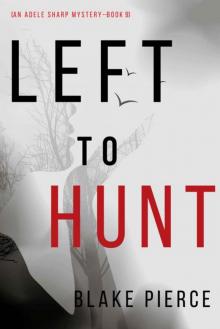 Left to Hunt (An Adele Sharp Mystery—Book Nine)
Left to Hunt (An Adele Sharp Mystery—Book Nine)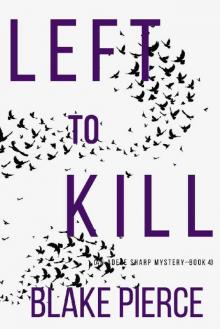 Left to Kill (An Adele Sharp Mystery—Book Four)
Left to Kill (An Adele Sharp Mystery—Book Four)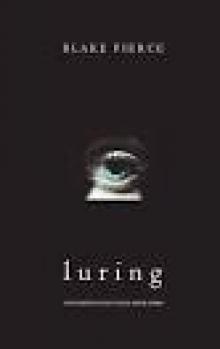 LURING
LURING If She Hid
If She Hid If She Fled
If She Fled Already Gone (A Laura Frost FBI Suspense Thriller—Book 1)
Already Gone (A Laura Frost FBI Suspense Thriller—Book 1) Vengeance in Vienna
Vengeance in Vienna Once Shunned
Once Shunned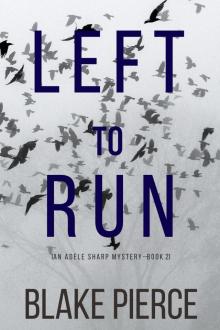 Left To Run
Left To Run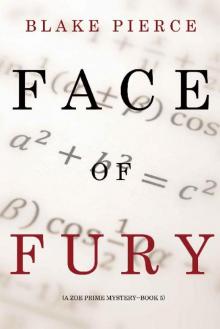 Face of Fury (A Zoe Prime Mystery--Book 5)
Face of Fury (A Zoe Prime Mystery--Book 5) Blake Pierce - Kate Wise - 5 - If She Fled
Blake Pierce - Kate Wise - 5 - If She Fled IF SHE RAN
IF SHE RAN Left to Envy (An Adele Sharp Mystery—Book Six)
Left to Envy (An Adele Sharp Mystery—Book Six) Silent Neighbor
Silent Neighbor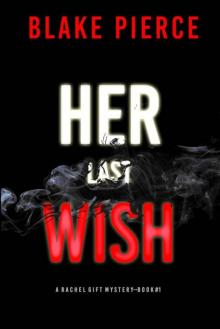 Her Last Wish (A Rachel Gift FBI Suspense Thriller—Book 1)
Her Last Wish (A Rachel Gift FBI Suspense Thriller—Book 1) Almost Lost
Almost Lost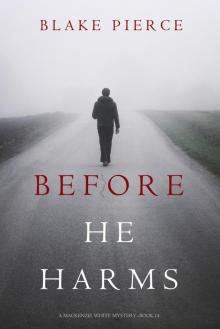 Before He Harms
Before He Harms Murder (and Baklava) (A European Voyage Cozy Mystery—Book 1)
Murder (and Baklava) (A European Voyage Cozy Mystery—Book 1) Left to Vanish (An Adele Sharp Mystery—Book Eight)
Left to Vanish (An Adele Sharp Mystery—Book Eight) THE PERFECT IMAGE
THE PERFECT IMAGE The Perfect Affair (A Jessie Hunt Psychological Suspense Thriller—Book Seven)
The Perfect Affair (A Jessie Hunt Psychological Suspense Thriller—Book Seven)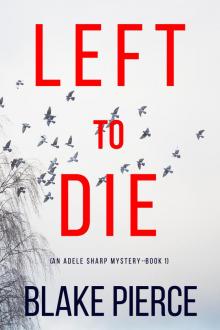 Left To Die
Left To Die BEFORE HE LAPSES
BEFORE HE LAPSES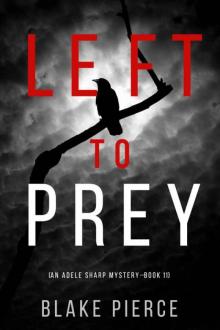 Left to Prey (An Adele Sharp Mystery—Book Eleven)
Left to Prey (An Adele Sharp Mystery—Book Eleven) The Perfect Neighbor (A Jessie Hunt Psychological Suspense Thriller—Book Nine)
The Perfect Neighbor (A Jessie Hunt Psychological Suspense Thriller—Book Nine)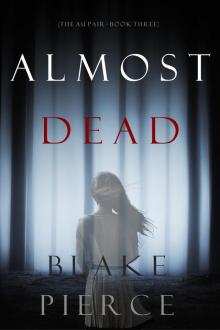 Almost Dead
Almost Dead The Perfect Wife
The Perfect Wife The Perfect Smile
The Perfect Smile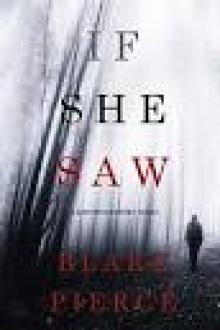 If She Saw
If She Saw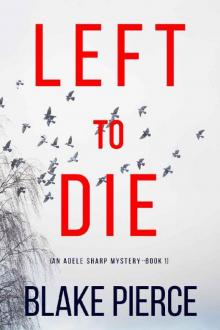 Left To Die (An Adele Sharp Mystery—Book One)
Left To Die (An Adele Sharp Mystery—Book One)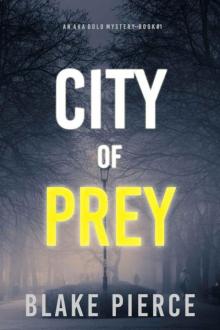 City of Prey: An Ava Gold Mystery (Book 1)
City of Prey: An Ava Gold Mystery (Book 1)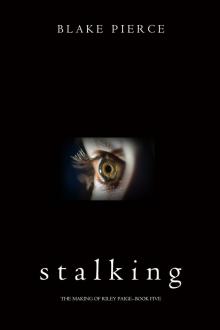 Stalking
Stalking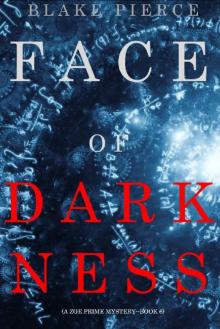 Face of Darkness (A Zoe Prime Mystery—Book 6)
Face of Darkness (A Zoe Prime Mystery—Book 6) The Perfect Mistress (A Jessie Hunt Psychological Suspense Thriller—Book Fifteen)
The Perfect Mistress (A Jessie Hunt Psychological Suspense Thriller—Book Fifteen) Girl, Vanished (An Ella Dark FBI Suspense Thriller—Book 5)
Girl, Vanished (An Ella Dark FBI Suspense Thriller—Book 5) The Perfect Block
The Perfect Block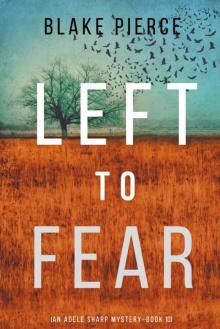 Left to Fear (An Adele Sharp Mystery—Book Ten)
Left to Fear (An Adele Sharp Mystery—Book Ten) Almost Gone (The Au Pair—Book One)
Almost Gone (The Au Pair—Book One) The Perfect Facade (A Jessie Hunt Psychological Suspense Thriller—Book Twelve)
The Perfect Facade (A Jessie Hunt Psychological Suspense Thriller—Book Twelve) The Perfect Affair
The Perfect Affair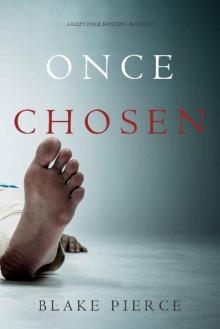 Once Chosen (A Riley Paige Mystery—Book 17)
Once Chosen (A Riley Paige Mystery—Book 17) Girl, Alone (An Ella Dark FBI Suspense Thriller—Book 1)
Girl, Alone (An Ella Dark FBI Suspense Thriller—Book 1)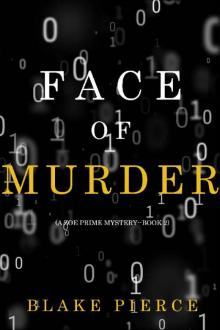 Face of Murder (A Zoe Prime Mystery—Book 2)
Face of Murder (A Zoe Prime Mystery—Book 2) The Perfect Mistress
The Perfect Mistress Crime (and Lager) (A European Voyage Cozy Mystery—Book 3)
Crime (and Lager) (A European Voyage Cozy Mystery—Book 3)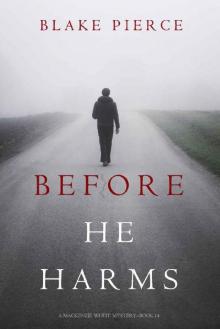 Before He Harms (A Mackenzie White Mystery—Book 14)
Before He Harms (A Mackenzie White Mystery—Book 14)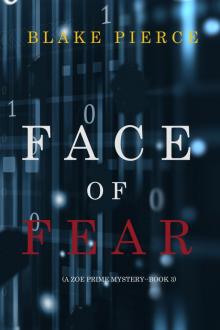 Face of Fear
Face of Fear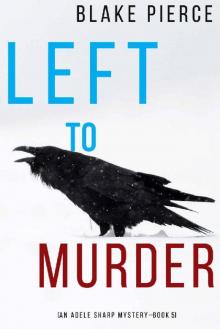 Left to Murder (An Adele Sharp Mystery—Book Five)
Left to Murder (An Adele Sharp Mystery—Book Five) Left to Vanish
Left to Vanish The Perfect Secret (A Jessie Hunt Psychological Suspense Thriller—Book Eleven)
The Perfect Secret (A Jessie Hunt Psychological Suspense Thriller—Book Eleven) The Perfect Deceit (A Jessie Hunt Psychological Suspense Thriller—Book Fourteen)
The Perfect Deceit (A Jessie Hunt Psychological Suspense Thriller—Book Fourteen)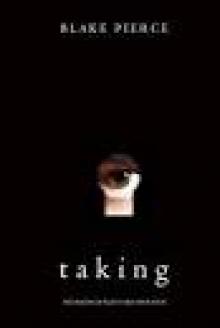 Blake Pierce - The Making of Riley Paige - 4 - Taking
Blake Pierce - The Making of Riley Paige - 4 - Taking Death (and Apple Strudel) (A European Voyage Cozy Mystery—Book 2)
Death (and Apple Strudel) (A European Voyage Cozy Mystery—Book 2) THE PERFECT HOUSE
THE PERFECT HOUSE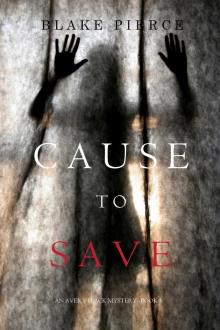 Cause to Save
Cause to Save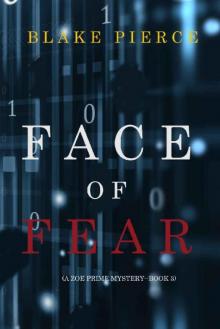 Face of Fear (A Zoe Prime Mystery—Book 3)
Face of Fear (A Zoe Prime Mystery—Book 3)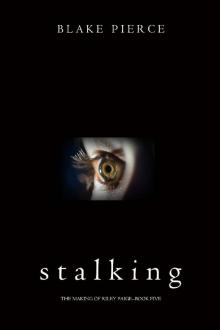 Stalking (The Making of Riley Paige—Book 5)
Stalking (The Making of Riley Paige—Book 5) A Neighbor's Lie
A Neighbor's Lie The Perfect Neighbor
The Perfect Neighbor Once Dormant
Once Dormant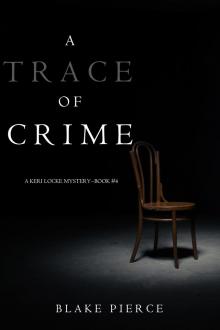 A Trace of Crime
A Trace of Crime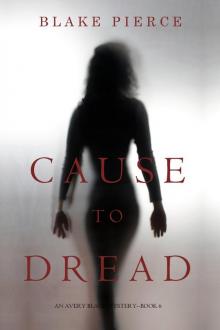 CAUSE TO DREAD
CAUSE TO DREAD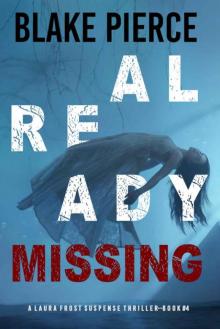 Already Missing (A Laura Frost FBI Suspense Thriller—Book 4)
Already Missing (A Laura Frost FBI Suspense Thriller—Book 4) Waiting
Waiting If She Knew
If She Knew If She Feared (A Kate Wise Mystery—Book 6)
If She Feared (A Kate Wise Mystery—Book 6)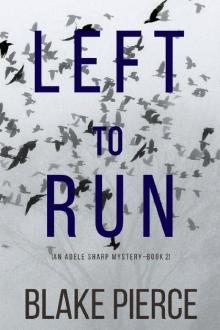 Left To Run (An Adele Sharp Mystery—Book Two)
Left To Run (An Adele Sharp Mystery—Book Two)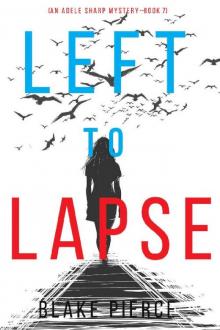 Left to Lapse (An Adele Sharp Mystery—Book Seven)
Left to Lapse (An Adele Sharp Mystery—Book Seven) If She Hid (A Kate Wise Mystery—Book 4)
If She Hid (A Kate Wise Mystery—Book 4) The Perfect Alibi (A Jessie Hunt Psychological Suspense Thriller—Book Eight)
The Perfect Alibi (A Jessie Hunt Psychological Suspense Thriller—Book Eight)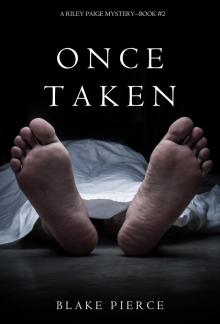 Once Taken
Once Taken Before He Envies
Before He Envies Before He Sins
Before He Sins Mackenzie White 07-Before He Sins
Mackenzie White 07-Before He Sins ONCE BOUND
ONCE BOUND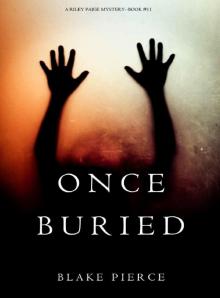 Once Buried
Once Buried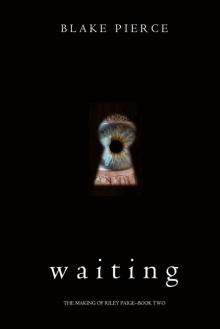 Waiting (The Making of Riley Paige—Book 2)
Waiting (The Making of Riley Paige—Book 2)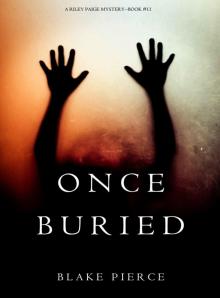 Riley Paige 11-Once Buried
Riley Paige 11-Once Buried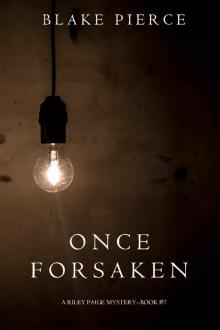 Once Forsaken (A Riley Paige Mystery—Book 7)
Once Forsaken (A Riley Paige Mystery—Book 7)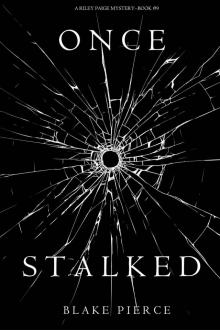 Once Stalked (A Riley Paige Mystery—Book 9)
Once Stalked (A Riley Paige Mystery—Book 9) The Perfect Disguise (A Jessie Hunt Psychological Suspense Thriller—Book Ten)
The Perfect Disguise (A Jessie Hunt Psychological Suspense Thriller—Book Ten)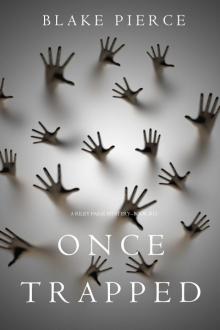 ONCE TRAPPED
ONCE TRAPPED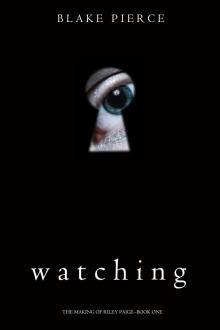 Watching
Watching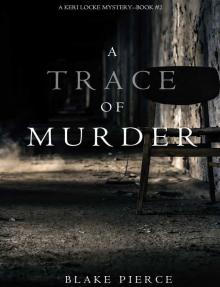 Keri Locke 02-A Trace of Muder
Keri Locke 02-A Trace of Muder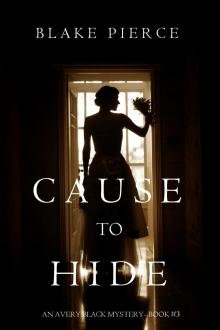 Cause to Hide
Cause to Hide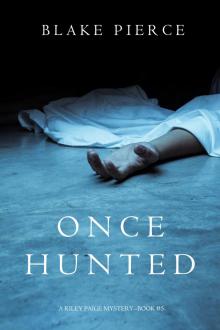 Once Hunted
Once Hunted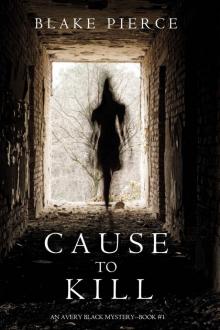 Cause to Kill (An Avery Black Mystery—Book 1)
Cause to Kill (An Avery Black Mystery—Book 1)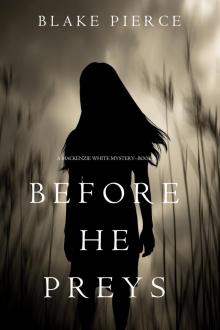 Before He Preys
Before He Preys Once Pined
Once Pined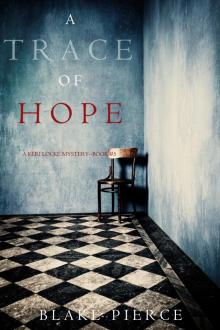 A Trace of Hope
A Trace of Hope Once Craved (a Riley Paige Mystery--Book #3)
Once Craved (a Riley Paige Mystery--Book #3)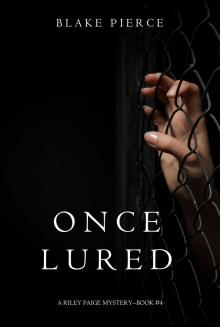 Once Lured
Once Lured Before He Sees (A Mackenzie White Mystery—Book 2)
Before He Sees (A Mackenzie White Mystery—Book 2) Before he Kills (A Mackenzie White Mystery—Book 1)
Before he Kills (A Mackenzie White Mystery—Book 1)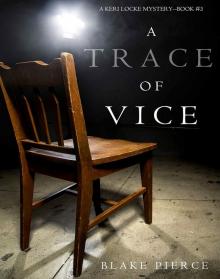 Keri Locke 03-A Trace of Vice
Keri Locke 03-A Trace of Vice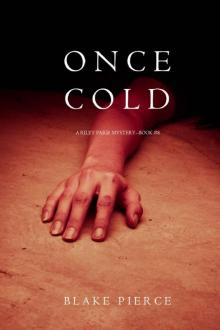 Once Cold
Once Cold ONCE LOST
ONCE LOST Before He Takes
Before He Takes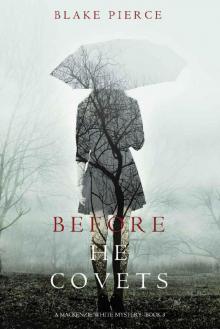 Before He Covets (A Mackenzie White Mystery—Book 3)
Before He Covets (A Mackenzie White Mystery—Book 3) BEFORE HE NEEDS
BEFORE HE NEEDS